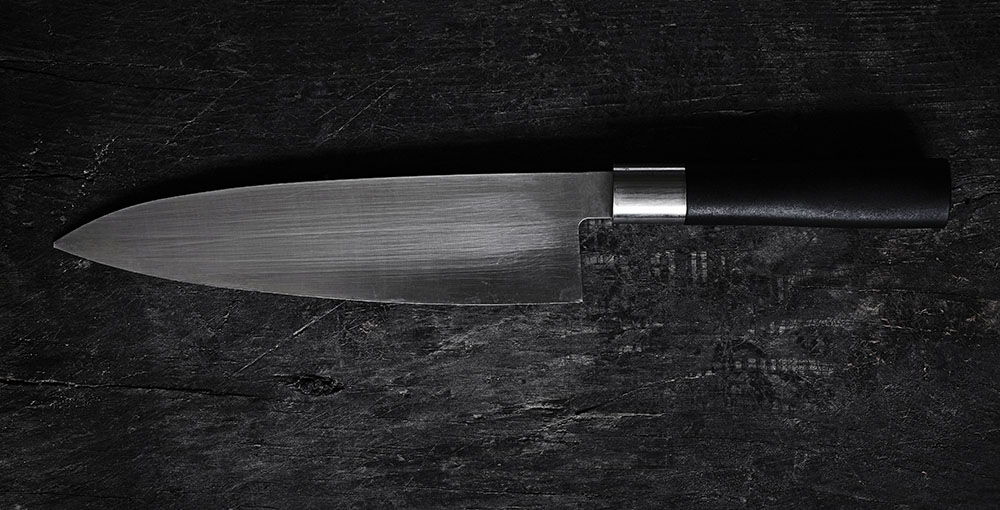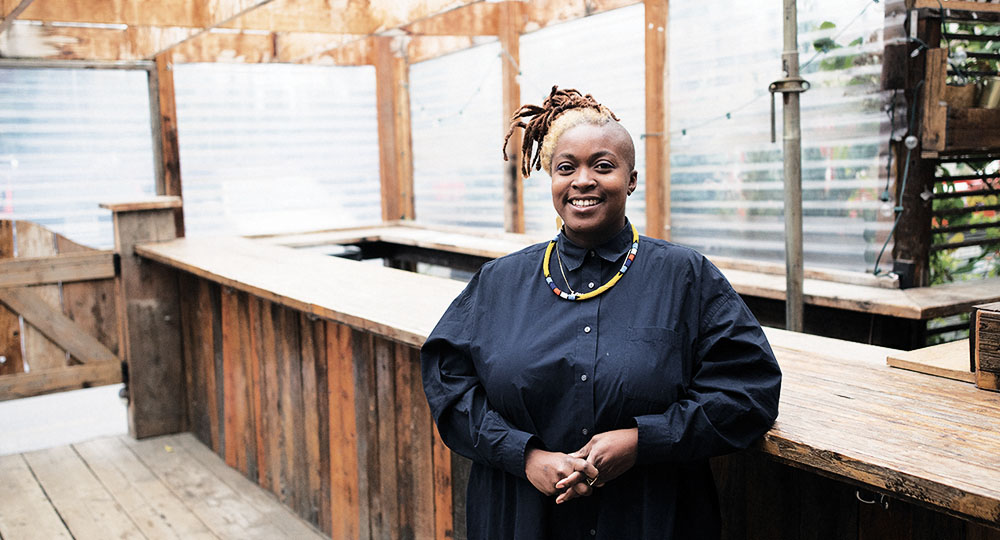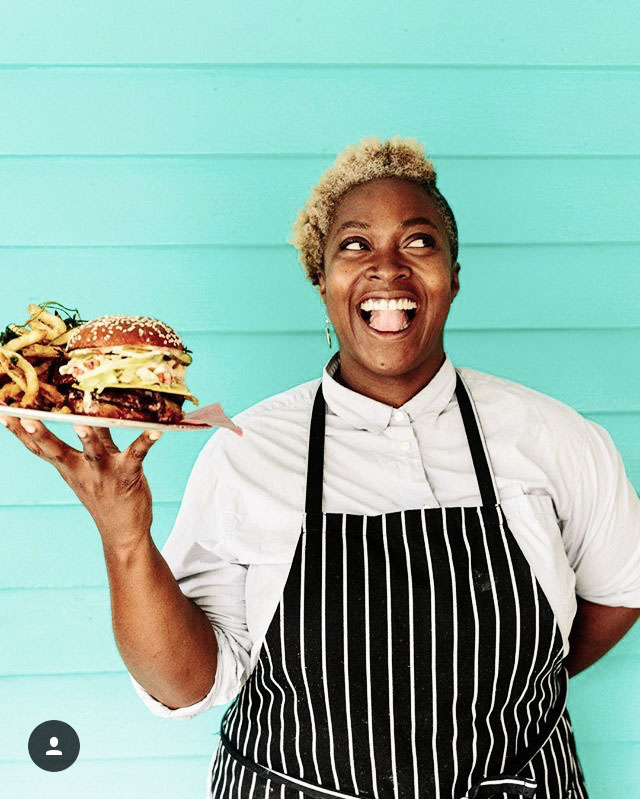
Chefs wield a special power. They create masterpieces that nourish, delight and bewilder, often at the same time. A meal made by a talented chef brings people together at the table and across time. If we are not careful, this special power can get overlooked. At Quench, we make a point to celebrate talented Canadian chefs every year and to acknowledge the people behind the plates.
Each of our 2019 Mav Chefs connect people in a unique way. Suzanne Barr is active in her community. Among other things, she uses her success as a chef to give others a start in the industry by helping them learn valuable kitchen skills. Marcel Larrea brought Nikkei to Montreal, and the cooks out of the kitchen. Jean-Christophe Poirier created a piece of his Quebec home town in Vancouver to give the West Coast a taste of the East. Our Mav Sommelier Bryant Mao connects with people every day, introducing them to wines and drinks made by Canadian producers around the world.
This month, we will publish one 2019 Mav Chef interview each week. This week, we start with Suzanne Barr.
Suzanne Barr
True True Diner, Toronto
In July, Barr launched two Toronto projects for which she is head chef: Avling Kitchen & Brewery and True True Diner. Barr is no stranger to being busy and has an impressive résumé. In 2018, she travelled the world, speaking at the MAD Symposium in Copenhagen and the Women in Hospitality United symposium in New York City. She also earned Best New Restaurant and was featured in Maya Gallus’s documentary film The Heat: A Kitchen (R)evolution. She is one of Canada’s most respected chefs. With her passion for local community, food security, and advocacy for people of colour and LGBTQ+ communities, she breaks down barriers everywhere she goes.

Why is it important to you to use your platform as a respected chef in Toronto to support the people in your community?
It’s easy to walk into a job, do what they ask and go home, and receive your monetary contributions for the work that you put in. But I’ve been given this opportunity. My parents, family, friends and community have always pushed me to stand up a bit taller, share a bit more, talk a bit longer, and speak a bit more, sometimes about things that people don’t want to talk about.
I have always put myself in scenarios where I may be the first person to do it or one of the only. That attitude comes from my great grandmother, my cultural background and my ancestral history. I’m the child of an entrepreneur who fought hard and managed to develop a business, from his garage.
I think this is the path I was always meant to take. I finally found it. I feel very grateful for my platform because I know it’s a challenge. It’s a challenge at times because my son and my partner need me, and my family wants to see me more. But they’re all supportive and understand my mission and the work that I put in.
What inspired you to become a chef?
My desire to learn and hone my craft within the culinary industry.
About 18 years ago, my mother was sick with pancreatic cancer. I moved home to take care of her during her therapy. I needed to feed her and take care of her, but I fell short on a few occasions. I felt vulnerable and misguided about how I could help her. When she passed away, I was left with a mission to learn something that would allow me to help should anything similar happen to my family again.
I reached a point in my career where I had done what I wanted to do in the corporate world. I wanted more. During a weekend meditating in an ashram temple, I ended up working in the kitchen. By the time I was back at work in the city, I had found a small culinary program that was right up my alley. It focussed on wellness, a whole foods diet and lifestyle and how to eat to live. No matter what, I never wanted to re-experience what happened with my mother. I wanted to feed people, help people, eat to live, and stay alive, stay sustained, understand how to heal yourself with food and natural ingredients.
What was it like when you first stepped into the industry and how has the industry changed since you became a chef?
It was definitely exciting. I had worked really hard for 15 years building trust and a name for myself in the show and television world. When starting out as a chef, I was being asked to start again from the ground up, work for minimum wage, and, in a way, re-establish myself in a world I knew next to nothing about. It was also scary, but fear has always propelled me to do more. I have continuously used fear to push myself harder, to get things done a little faster and to feel excited about the results once I overcome my fear.
Fear played a big part when dove into the kitchen. I was an older woman of colour (I was 30 at the time). I had already established a career. My work ethic was really rooted in hard work, asking questions but keeping on going. It really helped me to do well, because that’s a big part of the kitchen when you start out. You’ve got to cut, you got to chop, you’ve got to work up your experience and your skills within your department and hope that your chef sees potential in you.
Did you ever imagine you would speak at places like the MAD Symposium in Copenhagen and the Women in Hospitality Symposium?
I connected with a few women’s organizations during my many years in New York, when Hospitality United hadn’t yet been officially established. It was incredible to be invited to that and the [MAD Symposium in Copenhagen]. It was an incredible year, the same year that we got nominated for Best New Restaurant in Canada.
I’m surrounded by many really good people who help me stay grounded. I appreciate the people that have supported me along this journey and recognize what they’ve done. We work together to create what’s best.
What was the biggest decision you had to make or hurdle you had to overcome to get to where you are today?
Opening the doors of our restaurant Saturday Dinette, my first non-catering Toronto-based project, I found out I was pregnant. My pregnancy was the biggest game changer for me. It totally changed the trajectory of what we’d planned to do within that space. It taught me to keep moving forward. It also put me in the conversation with working parents, working moms, and showed me what it means to bring a child to work, especially in the restaurant industry and as a small business owner. I had my son in his carriage and stroller while I was on the line cooking and I would nurse in between services.
Have any of your projects surpassed your expectations?
While we were at Saturday Dinette, we launched a pilot training program called the Dinette’s Program to teach young women soft and hard skills for the culinary industry, specifically within the kitchen. Originally set up to help offset the initial costs of our project, the program turned into a big part of the work I really believed in.
Now I partner with a few different organizations around the city. These organizations are looking for services or training that will help them train individuals over a certain age who are trying to re-enter the workforce. The idea is to give them hope for the future, the strength and the courage to do something they love, and opportunities that they could never have imagined. These people have had a hard life and stepped into some difficult scenarios. They want to do something that gives them a sense of self.
I’m working on this program with some friends I’ve made over the years. I’ve partnered with a few other organizations and it’s becoming a bit more of a regular thing for me now. We’re hoping that True True Diner will become a hub for our training program so we can use the space for workshops and training. We could also place employees here or at other venues, organizations and restaurants around the city.
Training is one of my passions and I could never have imagined where it was going to take me. It can do the same for anybody else, no matter your background, what you look like, your skin colour; there are opportunities.
We’re choosing to be in the kitchen now rather than someone putting us there. The kitchen is where we’re meant to be. We’re now running our own kitchens, our own catering companies and developing our own product lines.

“I think this is the path I was always meant to take. I finally found it.”
What is your goal with Alving Kitchen and Brewery?
Like with any of my projects, my goal with Alving is to educate the community and the city that I live in, within the food world. I do this by sharing my experiences, my stories and the stories of the local community.
The concept is a conversation about the future breweries. The idea is to offer a kitchen environment and a brewery environment, animal procurement programming and rooftop garden programming. It’s also to be innovative with the space and to show guests the spirit of the brewery: working relationships with the farmers, artisan markets, bakeries and so on. The front of the house can share with guests where we source our fish, our beer grains and what we do with them after they’ve been used, what’s happening on our rooftop garden and what’s going to happen in the spring, the different programming and different ways to keep people active within in the space.
Do you envision the brewery to become a hub for the community?
Definitely. That would mean a lot to me, my whole team and the owner. We’d like people to feel connected with the space and feel a sense of ownership for it. They can come for celebrations, birthdays, gatherings, educationals, salons, talks. Come with your family, children, friends and sports teams. Feeling a bit nostalgic for the smells and the tastes, and the conversation that we invite into the space.
How often do you change up your menu and what influences the selections you make?
Although seasonality is important to me and inspires me, it’s no longer enough to make me change a menu, for example, by replacing a stand-out dish that may be out of season. I choose ingredients to evoke certain feelings, emotions and nostalgia.
We want to use ingredients in their entirety to showcase what’s possible. At Avling, we love having hummus on the menu because you can make it by reusing, redistributing and refocusing scraps from some of the vegetables we use for other dishes such as stocks and stews. We offer a charred broccoli stem hummus called “green hummus”. In fall, we will remake it using ingredients we have access to so we can keep it on the menu while showcasing seasonal ingredients. I base my ingredient choices on inspiration. The menu doesn’t necessarily change, but the ingredients do.
What’s your most memorable food moment?
I created one of my favourite menus when I did my Chef in Residence at the Gladstone Hotel. It was an opportunity to put myself on the plate, really open myself up to everyone about my family and myself and the future of how I will be making and talking about food. Every single one of my dishes had a message behind it and expressed my message about the future of cultural identity.
What dish would you make if you were having a group of people over for dinner?
A whole roasted chicken, for sure. It’s perfect in every way and simple. Salt, no oil. Little pepper. Little fresh lemon in the cavity. Sometimes a little garlic. Roast it in the oven, high heat, then drop it down to finish it off.

[…] as a chef to give others a start in the industry by helping them learn valuable kitchen skills. (Read the interview with Barr here.) Marcel Larrea brought Nikkei to Montreal, and the cooks out of the kitchen. Jean-Christophe […]